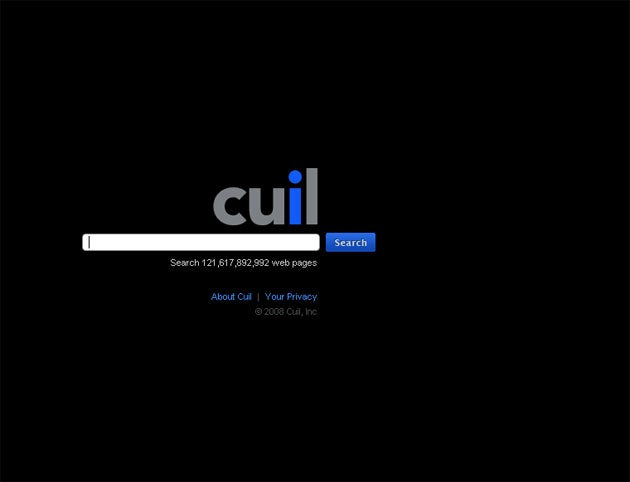Google old boys launch their own engine in global search for wealth

Call it internet treachery if you like but three former senior engineers from the Google campus are trying to usurp the search-engine crown from their former employer by launching an alternative tool that they hope we may all one day use for scouring cyberspace content.
With $33m (£16.5m) in venture capital funds, Anne Patterson and two other Google alumni – Russell Power and Louis Monier – yesterday took the wraps off Cuil.com. Their boast was brave if predictable: Cuil (pronounced "cool") will be easier and nicer to use and will have a longer reach.
To be more specific, the folk at Cuil.com – Ms Patterson's husband, Tom Costello, is also a founder – will have a search index spanning 120 billion web pages. If it's out there, Cuil will find it for you. No one will say what span Google boasts, but almost three years ago it stood at 8.2billion pages.
Cuil won't divulge the formula it has developed to cover a wider chunk of the internet with far fewer computers than Google. But rather than trying to mimic Google's method of ranking the quantity and quality of links to websites, Ms Patterson says Cuil's technology drills into the actual content of a page.
Its results are displayed with more photos spread horizontally across the page and include sidebars that can be clicked on to learn more about topics related to the original search request. Cuil is also hoping to attract traffic by promising not to retain information about its users' search histories or surfing patterns – something that Google does, much to the consternation of many privacy watchdogs.
Ms Patterson, who left Google back in 2006, claimed most surfers are ready for a new approach to content-searching. "Google has looked pretty much the same for 19 years now and I can guarantee it will look the same a year from now," she said.
Google itself did not appear overly concerned about Cuil's debut. "Having great competitors is a huge benefit to us and everyone in the search space," said a company spokesman. "It makes us all work harder, and at the end of the day our users benefit from that."
Lest anyone forget, Google does not have a monopoly on internet searches, or at least not quite. Recent data show the company commanding 62 per cent of the US market, compared to 21 per cent and 8.5 per cent respectively for its two largest rivals, Yahoo and Microsoft's MSN service. Nor is it by any means the first time that a new upstart company like Cuil has joined the fray. Other plucky pretenders include Teoma (which was adopted by Ask.com), Vivisimo, Snap, Mahalo and Powerset. Cuil sets itself apart, however, by being created by ex-Google engineers.
As for its name, the company says it was inspired by the Irish roots of Mr Costello and specifically a Celtic folklore figure named Finn McCuill (or Finn McCool). They might want to rectify one early problem. A search on Cuil.com for information about the aforementioned Mr McCuill turned upprecisely nothing.
* The editor of the BBC’s Newsnight programme has resigned his position to join Google as head of PR for the UK. Peter Barron has spent 12 years at the BBC2 programme, as well as time at Channel 4 and with Tonight with Trevor McDonald
Join our commenting forum
Join thought-provoking conversations, follow other Independent readers and see their replies
Comments
Bookmark popover
Removed from bookmarks